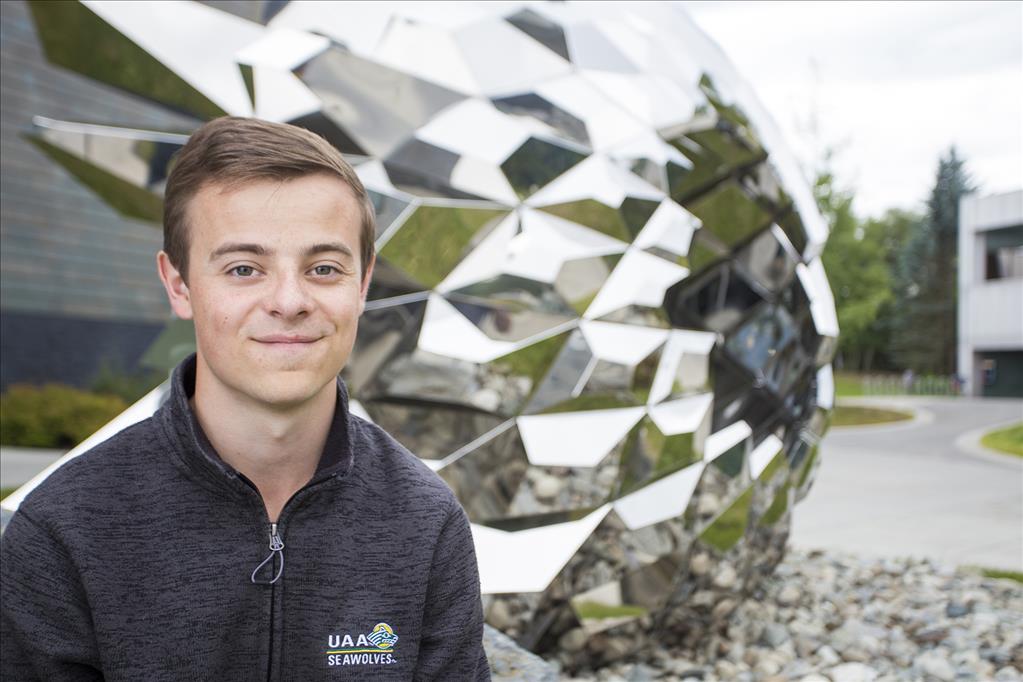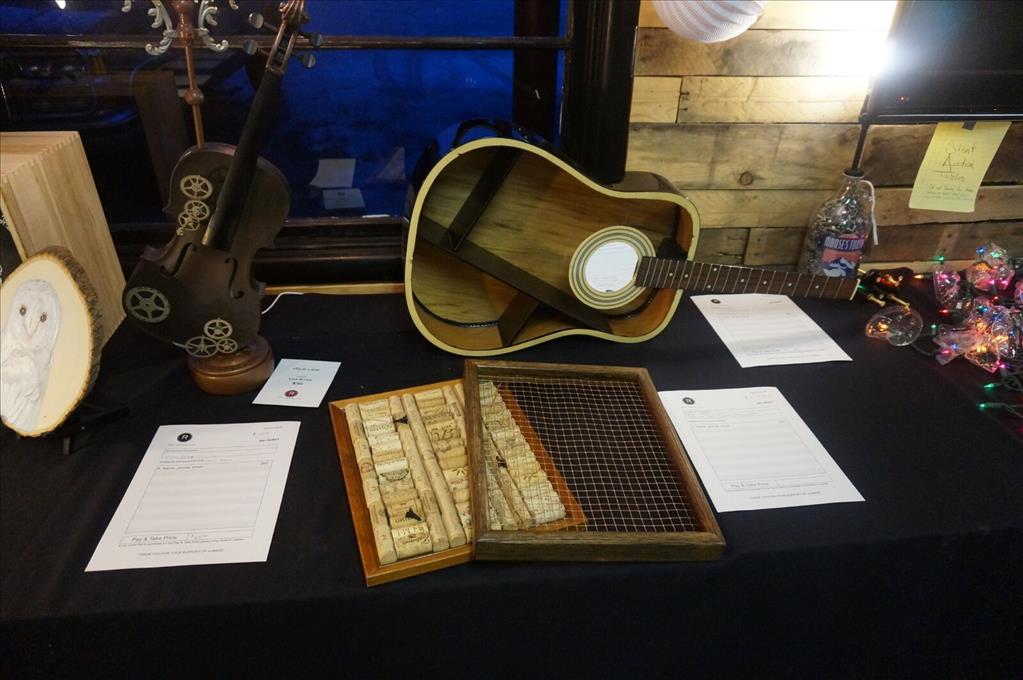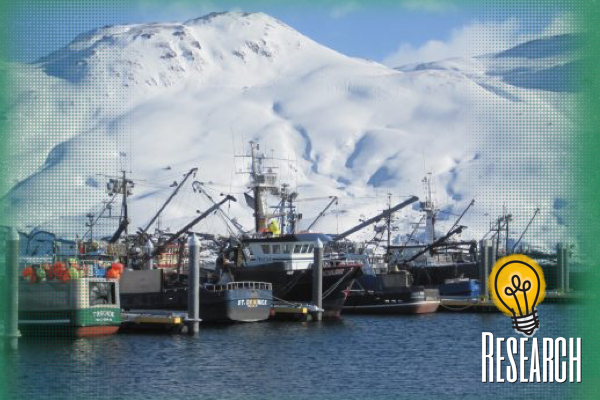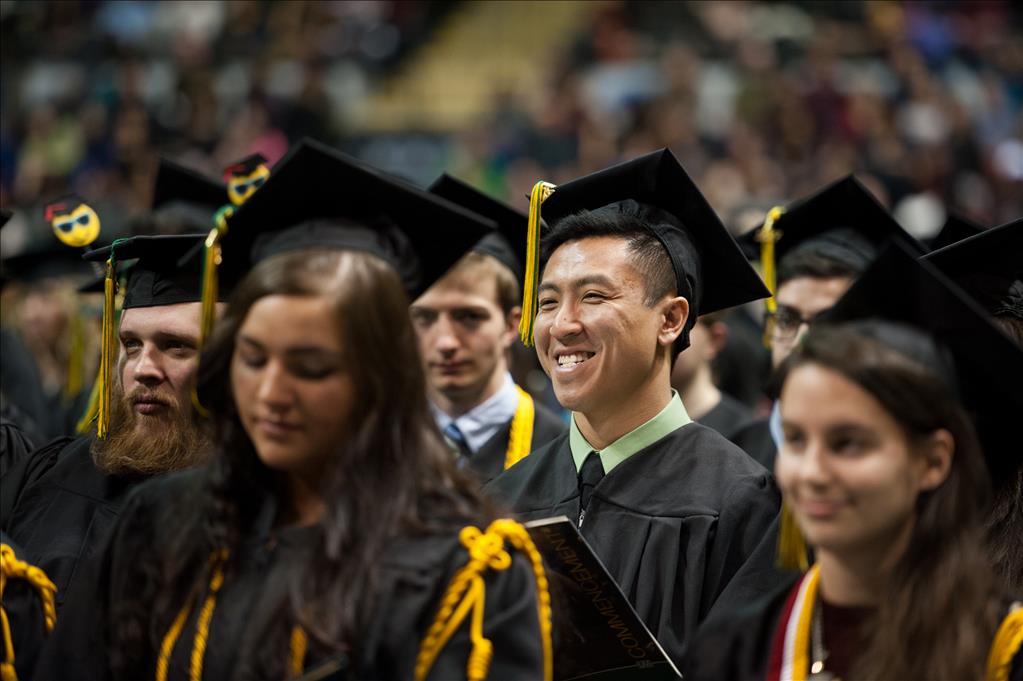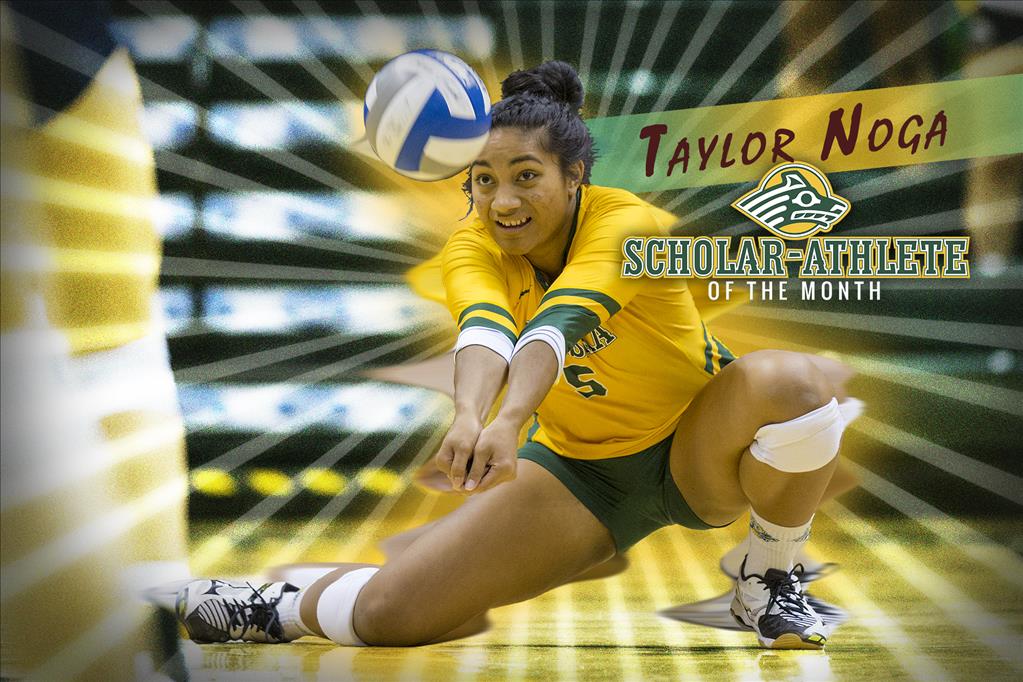Offering an oasis for breast-feeding mothers, on UAA's campus
by Tracy Kalytiak |
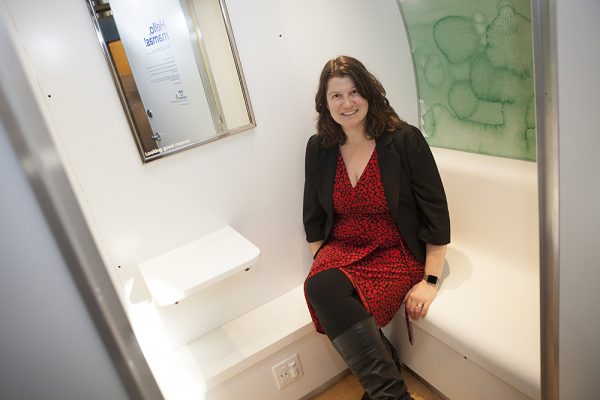
UAA's Dr. Corrie Whitmore led a team of faculty, staff and students in applying for a grant that brought a $15,000 Mamava lactation pod to the UAA Student Union. Now, nursing mothers will have a private, dedicated space on campus to feed their children or pump breast milk. (Photo by Philip Hall / University of Alaska Anchorage)
Not so long ago, Dr. Corrie Whitmore was traveling in the Lower 48 without her breast-fed infant son.
Her plane landed at the crowded and busy Hartsfield-Jackson Atlanta International Airport and the UAA assistant professor of health sciences immediately sought a calm, private place to pump breast milk.
Finding such a place was often a challenge for Whitmore - as it is for other breast-feeding mothers who either need to directly breast-feed their child or pump breast milk. Pumping is an urgent task because a working mother must pump breast milk several times a day so her body will continue producing enough milk to feed her baby.
Breast-feeding benefits babies (and mothers) in numerous ways:
• It provides closeness between a mother and her infant.
• Breast milk is easier for a child to digest, is always available, doesn't need to be prepared, has all the nutrients and growth factors a baby needs; and may help protect against a variety of diseases and infections.
At work, Whitmore had cobbled together options: She was able to pump in her office at the Bragaw Office Building, closing her blinds and putting a sign on her door asking visitors to phone since she wouldn't be answering her door for 20 minutes. She pumped in the group study rooms at the library. She would borrow offices in departments where she knew somebody; some of those offices had functional blinds, some didn't, so Whitmore would pump while sitting under the desk in another faculty member's office in a building where she had to be for meetings.
"I was wearing my little pumping backpack that had the pump and the milk in it," she said, "having to solve problems all over campus in order to be able to balance all the responsibilities of my job with taking care of my son in the way I wanted to."
Federal law protects nursing mothers' right to take breaks at work to express breast milk.
In the midst of Terminal D at the Atlanta airport, Whitmore found the perfect spot where she could sit alone, relax, and pump milk to store for her infant son.
It was a Mamava lactation pod - a tiny room equipped with seating, shelving and electrical and USB ports.
"In that very full airline terminal, being able to step into that little private space and pump was a huge relief," Whitmore said. "Which is part of why, when I saw this possibility, that it was so compelling."
The alternative was to use one of the airport's family bathrooms, "but then you tie it up for 20-25 minutes and people who are trying to take someone who needs support to the bathroom don't have that resource," Whitmore explained. "[The pods are] popular in airports; they exist on other campuses and in public buildings that want to create a designated space for people but don't necessarily have office space they can make available to the public."
Making it happen at UAA
Whitmore wanted to bring a pod to UAA, to offer a new and better option to breast-feeding moms who previously may have breast-fed or pumped in not-so-ideal places like restrooms or out in their cars.
When Whitmore returned to Anchorage, she immediately built a team of UAA faculty, staff and students and applied for an Alaska Workplace Breastfeeding Support Project grant through the Alaska Division of Public Health's section of Women's, Children's and Family Health. The project aims to help Alaska organizations implement workplace policies and spaces to accommodate breast-feeding mothers.
Organizations could apply for one, two or all three options for assistance. These included placement of a Mamava lactation pod in the organization's facilities; $1,000 scholarship to create or improve an existing lactation space; and technical assistance to develop a workplace breast-feeding accommodation policy based on Fair Labor Standards Act and Affordable Care Act requirements. Federal funding from the Association of Maternal and Child Health Programs and the Association of State and Territorial Health Officials financed the grant.
"This grant will help UAA support employees and students who breast-feed their children," Whitmore said. "Improving access to campus lactation spaces is one way the university can encourage nursing mothers to continue their education or career."
The university is the sole Alaska recipient of the lactation pod, valued at $15,000. UAA also received one of 15 $1,000 scholarships to designate additional campus lactation spaces.
The university and state signed a three-year memorandum of understanding regarding use of the lactation pod and implementation of a workplace breast-feeding accommodation policy. If the university meets its conditions, the state may donate the pod to UAA.
On the Mamava website, a map shows where the pods are located all over the country.
"Our pod will be on that map and in their app, which you can use to locate a space to pump or breast-feed here very soon," Whitmore said.
The lactation pod is located on the first floor of the Student Union. People who wish to use it may obtain an access code from the information desk. A ribbon-cutting ceremony for the pod will be held at 2:30 p.m., Friday, March 24. Light refreshments will be served; free onesies will be available to the first 50 guests. The ceremony is open to the public.
Written by Tracy Kalytiak and Kirstin Olmstead, University of Alaska Anchorage
 "Offering an oasis for breast-feeding mothers, on UAA's campus" is licensed under a Creative Commons Attribution-NonCommercial 4.0 International License.
"Offering an oasis for breast-feeding mothers, on UAA's campus" is licensed under a Creative Commons Attribution-NonCommercial 4.0 International License.










